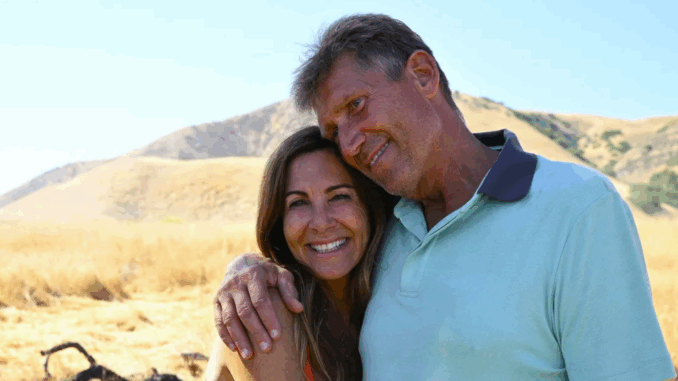
In a reality TV landscape saturated with scripted drama, influencer hopefuls, and exaggerated plot twists, The Golden Bachelor arrived like a quiet revolution. There were roses, yes. There were confessionals, tears, and sunset dates. But somehow, everything felt different. It was slower, softer — and far more sincere.
While other dating shows may compete to be outrageous, The Golden Bachelor chose a radical alternative: honesty. And in doing so, it not only defied expectations but set a new gold standard for reality storytelling.
Age Changed Everything
The most obvious difference, of course, was the cast. At its center stood Gerry Turner, a 72-year-old widower searching for love, surrounded by women in their 60s and 70s who had lived full lives — filled with love, loss, motherhood, careers, and reinvention.
With that age came depth. Conversations weren’t about Instagram followers or brand deals. They were about grief, legacy, forgiveness, and second chances. Dates weren’t spectacles — they were moments of true connection.
And the women weren’t caricatures. They were layered, bold, broken, funny, and real in ways reality TV often fails to capture. They weren’t “contestants.” They were people — with families, histories, and something far more interesting than drama: perspective.
Slower Pace, Bigger Impact
Most dating shows rely on speed — fast connections, fast heartbreak, and faster eliminations. But The Golden Bachelor slowed things down. Dates felt like actual conversations. Emotional arcs unfolded naturally, not edited into cliffhangers.
Instead of building drama around scandals or villains, the show leaned into moments of quiet beauty. A woman remembering her late husband. Gerry placing a hand over someone’s trembling fingers. Tears, not for show, but because the stakes were real.
This gentler pace didn’t make the show boring — it made it meaningful. It reminded viewers that love isn’t always about sparks and spectacle. Sometimes, it’s about sitting across from someone who understands your loss — and wants to walk with you through what’s next.
The Power of Sincerity

Perhaps the most striking rule The Golden Bachelor broke was the unspoken one that governs much of reality TV: don’t be too earnest.
Gerry was earnest. Painfully so, at times. He wore his emotions on his sleeve. He talked openly about his grief. He didn’t flirt for the cameras — he leaned into connection. That sincerity was contagious. It brought out emotional honesty in the women as well.
There were fewer games. Fewer masks. And when drama did emerge — as with the final decision between Leslie and Theresa — it didn’t feel manufactured. It felt human.
In a genre where manipulation often wins, this season showed that kindness can carry a story just as powerfully.
Real Stakes, Real Emotions
What set The Golden Bachelor apart was the emotional risk involved. These weren’t people experimenting with love. These were people who had loved — and lost. Some were widowed. Some had been alone for years. Some were just starting to believe they could open their hearts again.
Every connection carried weight. Every goodbye felt heavier. And the relationships formed in the house — not just with Gerry, but between the women — were rich with empathy.
There’s something profound about watching people who know the value of time say, “I’m still willing to risk my heart.” That bravery made every rose feel earned.
It Wasn’t About Youth — But It Was About Hope
In a world obsessed with staying young, The Golden Bachelor didn’t pretend these women were something they weren’t. They talked about aging. About losing friends. About changing bodies. But the show never treated those topics as weaknesses.
Instead, it celebrated them.
And what emerged was a narrative we rarely see on TV: that hope doesn’t fade with age. That falling in love at 70 can be just as exhilarating — and terrifying — as falling in love at 27.
The stories felt new not because they were outrageous, but because they were absent for so long.
A Model for the Future
So what happens now?
The Golden Bachelor proved that reality TV doesn’t need to be exploitative to be compelling. It doesn’t need to rely on alcohol, scandals, or manufactured fights to create tension.
It just needs people who are brave enough to be real — and a production willing to honor that reality.
The success of the show has sparked demand for more: The Golden Bachelorette, spin-offs, and calls for other genres to follow suit. But more than that, it has shifted something in viewers. It’s made them wonder: What if we told more stories like this? Stories where aging isn’t a punchline, vulnerability isn’t weakness, and love — real love — gets to be center stage.
The Reality We Needed
In the end, The Golden Bachelor didn’t just break the rules of reality TV. It reminded us why we watched in the first place.
To feel. To believe. To remember that even when life feels long and loss feels endless, something beautiful could still be waiting around the corner — or under a gazebo, with a trembling rose and a trembling voice.
And maybe that’s the most golden truth of all.